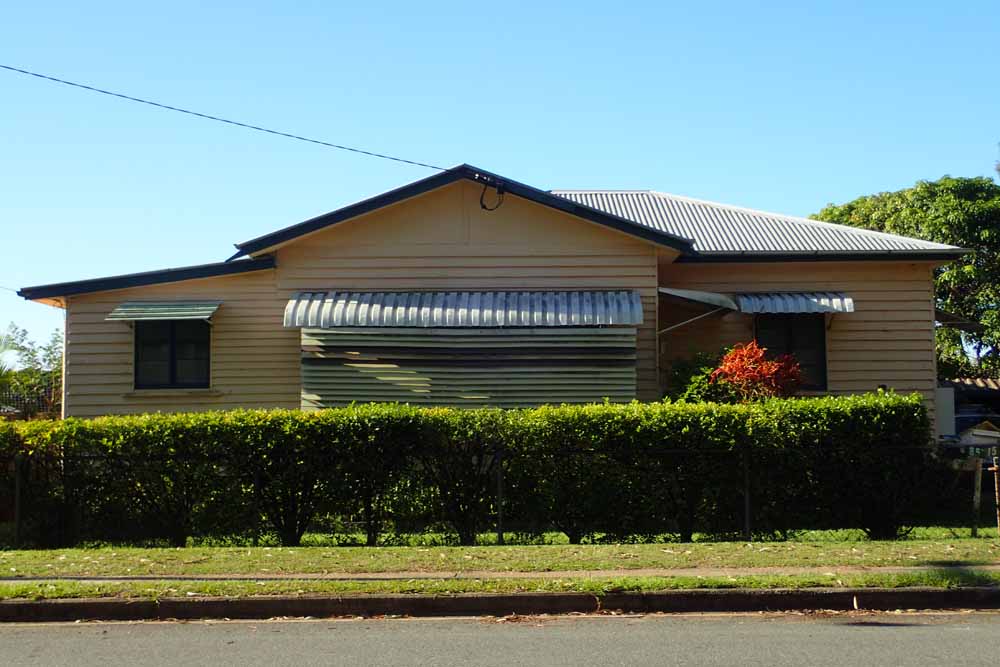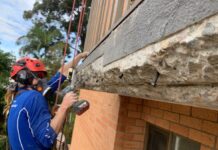Not going to lie here, I’m proudly the Brisbane building inspector who makes sellers reach for their brown pants. I have a reputation for being very, very good at spotting building defects and opening up a can of price re-negotiation worms. So let me tell you what you should know about Apparent Concealment.
The Fine Line of Fraud and Disclosure
When you are planning to sell your home, it’s tempting to apply a fresh coat of paint to hide a crack in the wall, hire in a designer to strategically position stylish furniture or plant pots of colourful flowers around the garden to lift its look and feel. It’s also tempting not to declare certain facts which ultimately may end up putting potential buyers off, including details of the long standing argument with your neighbours directly behind.
With an aim to get the best possible price, it’s highly possible you may consider just how much you need to declare. Your gut instinct will tell you that honesty is always the best policy, but there is that fine line between disclosing facts that may negatively affect the value and being sued in the future for being blatantly dishonest.
A HUGE RED Light on your Inspection Report – Apparent Concealment Of Possible Defects
On the flip side, as a potential homebuyer, it’s essential that you are aware of the games sellers can and do often play. Even a savvy first home buyer will be on the lookout for concealments. The apparent concealment of possible defects is a far too common concern, yet doesn’t go unnoticed when an experienced inspector is on the case.
Home sellers – disclosure or deceit?
When putting your home on the market there is a requirement to disclose any known concerns about your property so that prospective buyers are well informed. Little white lies, or the decision to conveniently overlook a known problem, can lead you into more trouble than it’s worth.
Let’s not forget that most smart and savvy homebuyers, whether it’s their first or fifth property purchase, will opt to have a pre-purchase home inspection undertaken. This inspection will uncover the less favourable aspects of the property. Believe it or not, if there is or has been an ongoing issue, any potential buyer will want to hear it from you straight up. It may mean they try to negotiate a better price or commence discussions relating to required repairs but you are certainly putting yourself in the good books and not setting yourself up for a potential lawsuit.
Home buyers – take control of the inspection
Whether you are presented with a glowing or not so good inspection report from the homeowner or real estate agent, don’t take this as the final word on the matter. The only way to avoid nasty surprises and get the full picture is to organise an independent pre-purchase building inspection yourself. There are plenty of ways homeowners can gloss over defects; after all, they are out to sell their home at the highest price.
Key concerns that are easy to conceal
So what could a homeowner try to cover up? Here are just a few of the common concerns that crop up post sale and aren’t always obvious at first glance.
Water damage
One of the most common areas of concealment relates to water damage. Stains because of moisture are surprisingly easy to hide. Whether it’s via painting, decorating or strategic placement of accessories, an untrained eye won’t always spot the very early signs of mould or rot.
An inspector won’t only look for surface concerns but will gain access to areas beneath the home and even peruse the perimeter and foundations. Attempts to conceal water damage by strategic placement of boxes, storage containers and even pot plants will raise a red flag. Deceitful tactics don’t go unnoticed if you have a professional inspector on board.
Creaky or uneven floors
It may only be a minor creak in the floorboards or a slight sense of movement as you wander through the home, but don’t overlook anything that feels unusual. A door that does not open or close without effort, windows that are stiff to move and even the feeling of variations in temperatures as you walk through a home can indicate that something is not right.
If you’re lucky, these subtle signs might indicate something harmless and repairable, like poor insulation or a single unstable floorboard. On the other hand, you could be looking at an extension or renovation that has not been completed to the required regulations and standards. A violation of local building code can seriously compromise the structure and safety of your potential new home. It is always worth checking!
Well timed open for inspections
Nothing beats the way sunlight pours through the kitchen window, the warmth that an outdoor patio can bring and the sounds of silence of your surrounding neighbourhood. A homeowner certainly won’t go out of their way to disclose the fact that their neighbourhood dog barks at all hours of the night and that house down the street has too many visitors to count.
So, whilst it’s wise to view a home during the most favourable times, as a potential buyer take the time to stroll around the streets at various times of the day and night. Drive past during the morning rush hour and again on a random weekday afternoon to get a clear picture of the area’s patterns and residents’ lifestyles.
Relying on an independent property inspection prior to purchase
Once you fall in love with a home, it’s all too easy to overlook minor concerns – until it’s too late. A property inspection may be daunting because of the fear of what may be uncovered, but it’s a recipe for disaster if you skip this crucial step. There may be recourse available down the track, but that’s one for the legal fraternity to advise you on. And who wants the headache of a legal case?
An independent home inspector will uncover problems. It’s a given. But it’s not always a cause for panic. Many concerns can be fixed with ease and whilst some may be expensive, the key is to use these findings to your advantage as a buyer. It could give you the leverage to renegotiate a price or the confidence to walk away.
An inspection is not designed to predict the future; it is designed to give you the facts as they are on the date of inspection, and the insight into potential outlays that could become a reality. If you choose to proceed with the purchase despite the findings, you are now armed with a detailed to-do list.
Being aware that sellers probably will try to cover up negative aspects of the home is essential to making a sound purchasing decision. Take control as a prospective buyer and seek the guidance of an independent experienced inspector. Apparent concealment of possible defects is the professional building inspector’s specialty!





